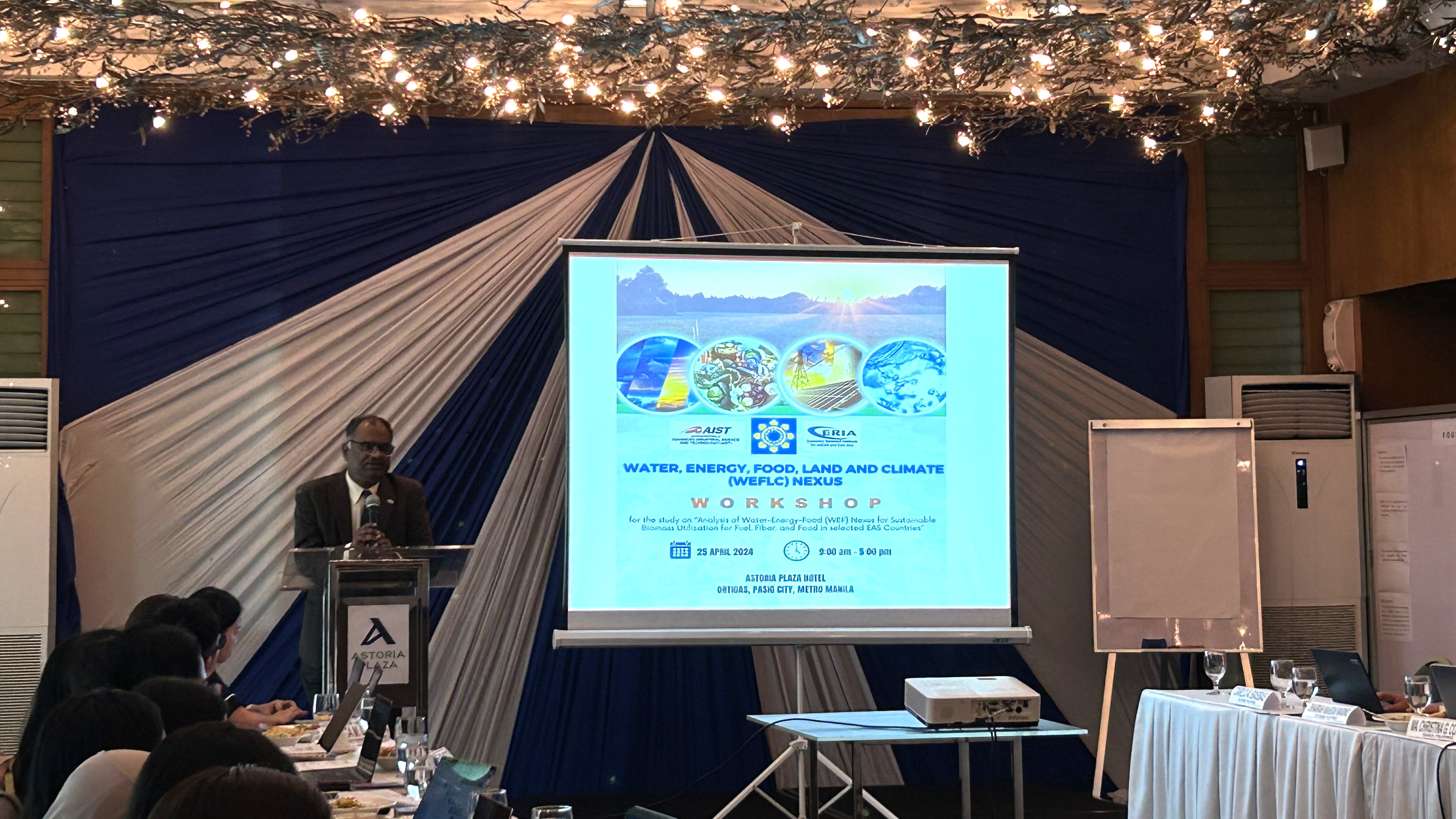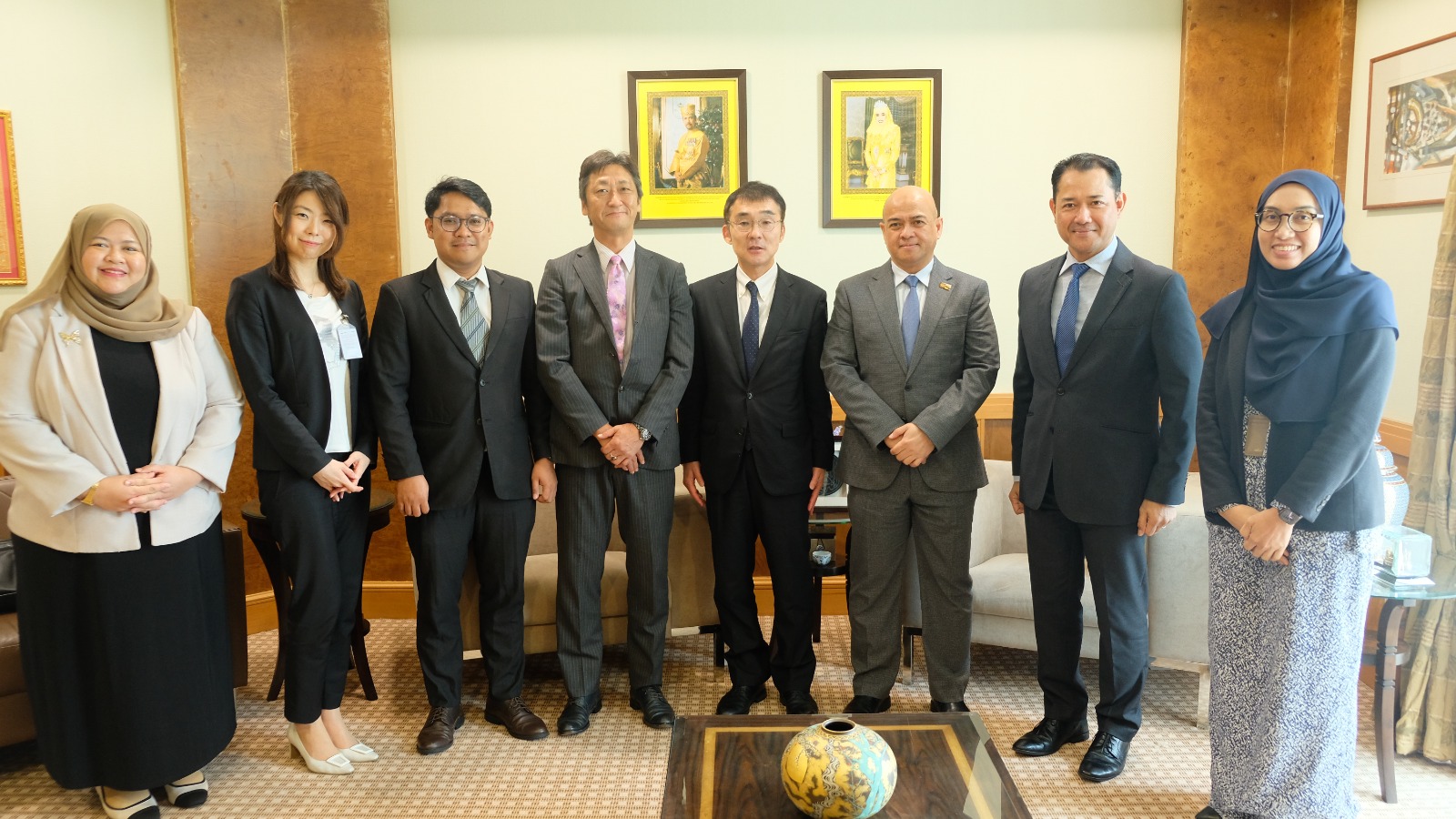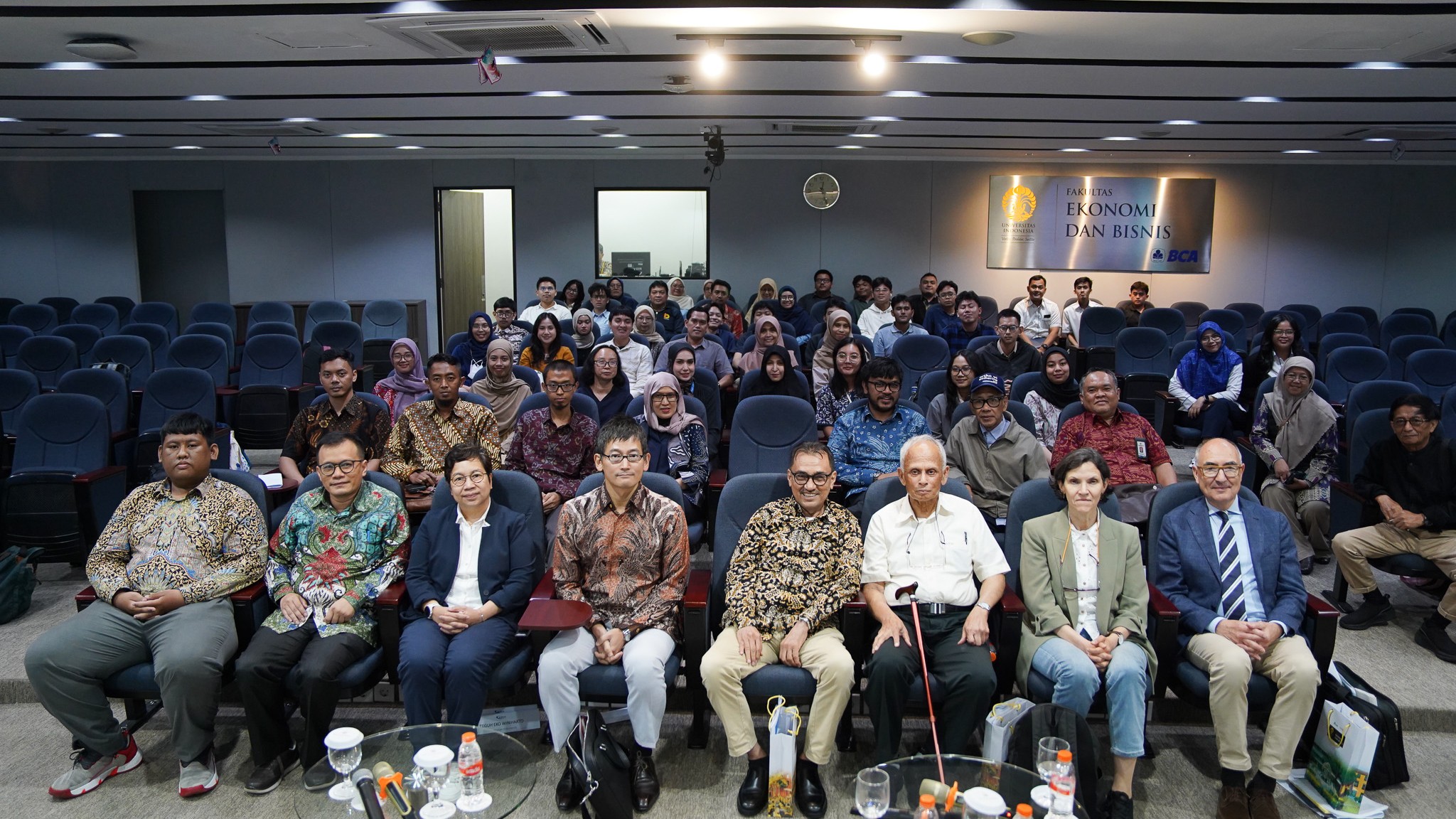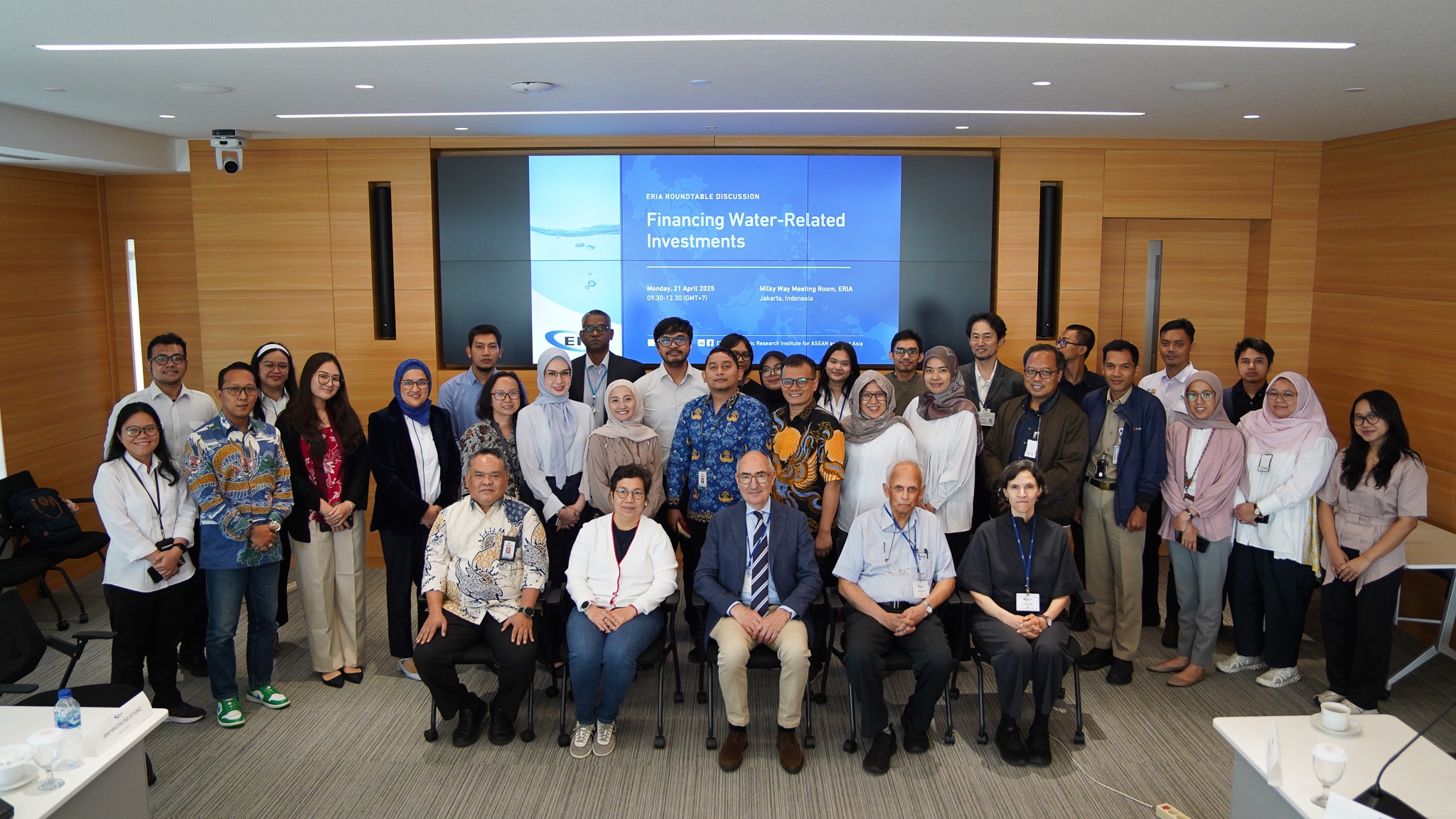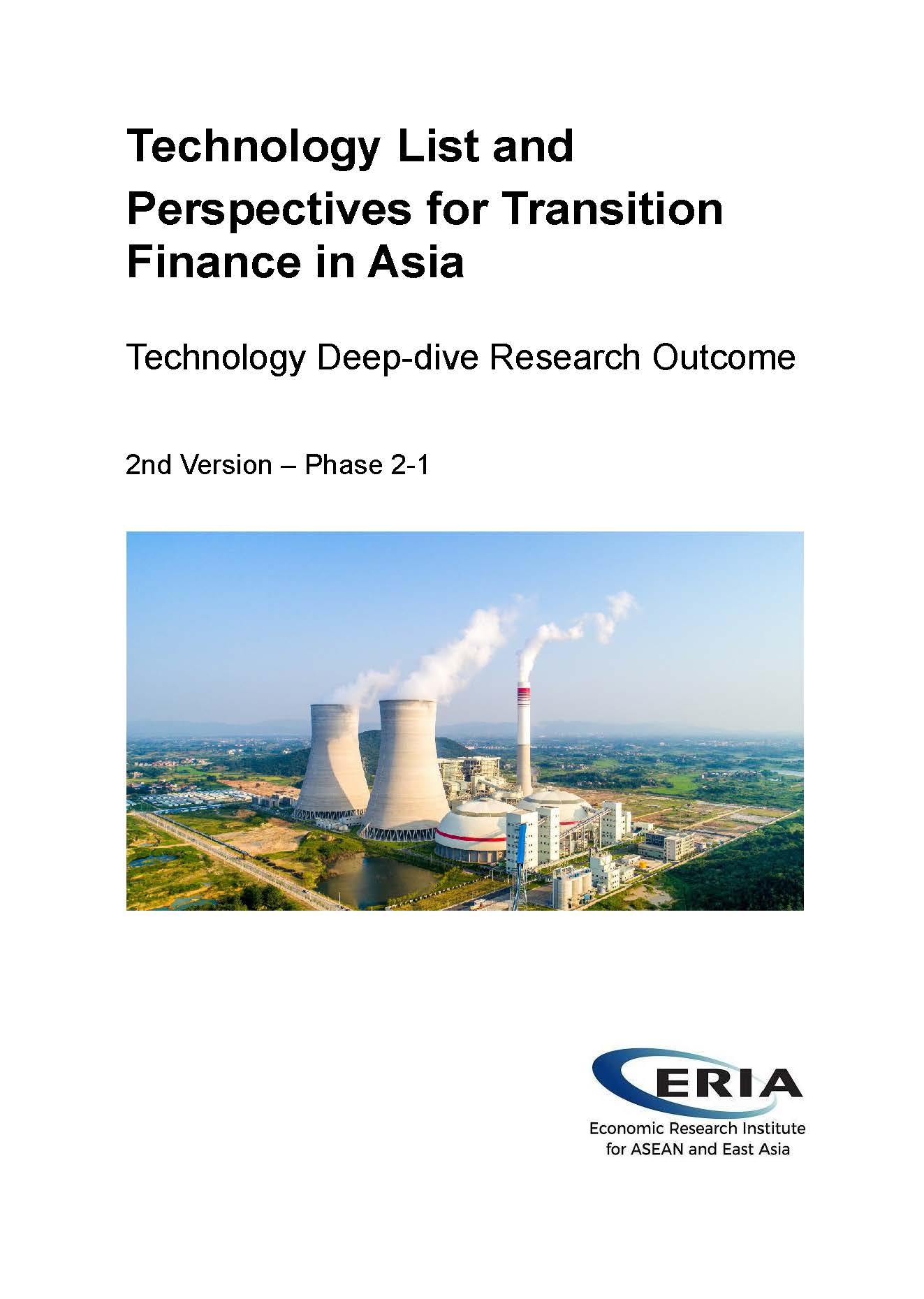ERIA Workshop on the Analysis of Water-Energy-Food Nexus for Sustainable Biomass Development
Share Article:
Print Article:
Manila, 27 April 2024: Challenges to biomass utilisation encompass food supply, land conversion, water use, and energy sustainability. In line with the Water–Energy–Food (WEF) nexus concept, managing resources for the biomass supply chain requires consideration of intricate interactions and potential impacts across all phases – from cultivation to production and distribution. Broadening the design and management of the biomass supply chain to encompass other critical resources is essential to achieving a balance in activities, including land usage, waste management, environmental and economic implications, and resource efficiency. This approach enhances the multifaceted and interdisciplinary nature of the nexus.
ERIA, in collaboration with the National Institute of Advanced Industrial Science and Technology (AIST), is conducting a study on the WEF nexus for Sustainable Biomass Utilisation for Fuel, Fiber, and Food in selected East Asian Summit (EAS) Countries. The working group meeting for this study convened in Manila on 27 April 2024, following a stakeholder consultation meeting the previous day. Dr Venkatachalam Anbumozhi, Senior Research Fellow for Innovations at ERIA, inaugurated the proceedings, highlighting the WEF nexus as an applicable framework for managing the balance between human development and natural resource constraints. With a set of indicators, it could become a valuable tool for addressing challenges related to resource depletion and clean energy development. Dr Yuki Kudoh of AIST and Ruby de Guzman of the Department of Energy also contributed to the opening panel.
During the deliberations, the ERIA Working Group members engaged stakeholders from the academic, government, and private sectors in the Philippines to understand concerns related to biomass production and revisit policy objectives for bioenergy production. The workshop, attended by thirty delegates from various government agencies, private sectors, and academia, provided a platform for exchanging insights on the use of sustainable biomass and addressing challenges such as food availability, land conversion, water usage, and energy sustainability. To mitigate these challenges, stakeholders emphasised the need to revisit existing policies or establish relevant ones.
Furthermore, Working Group members from India, Indonesia, Malaysia, the Philippines, Thailand, and Viet Nam shared progress on Nexus analysis using environmental, economic, and social development indicators. Integrated meta-policy instruments were discussed to address trade-offs associated with inefficient biomass utilisation. The key results of the study's first phase will be reported at the 29th EAS Energy Cooperation Task Force (ECTF) and 42nd Senior Officials Meeting on Energy (SOME) meetings scheduled for 24-28 June 2024 in Luang Prabang, Lao PDR.
